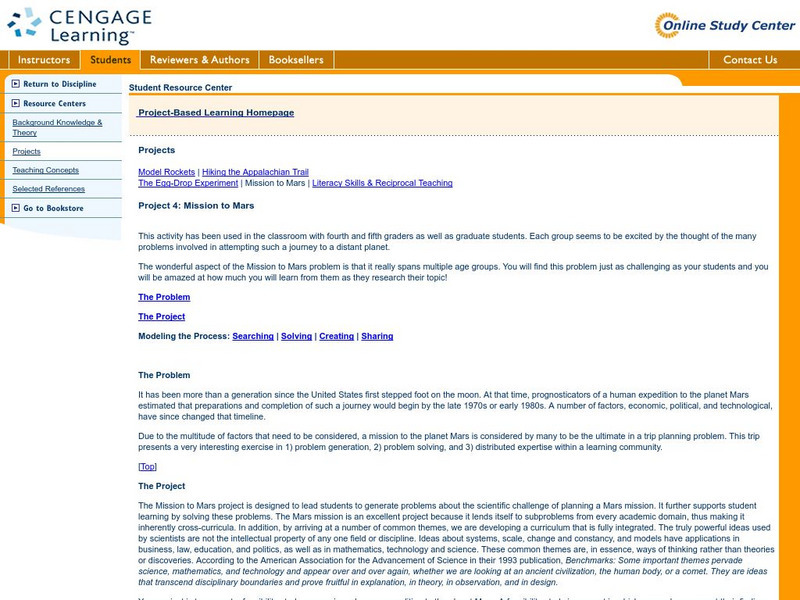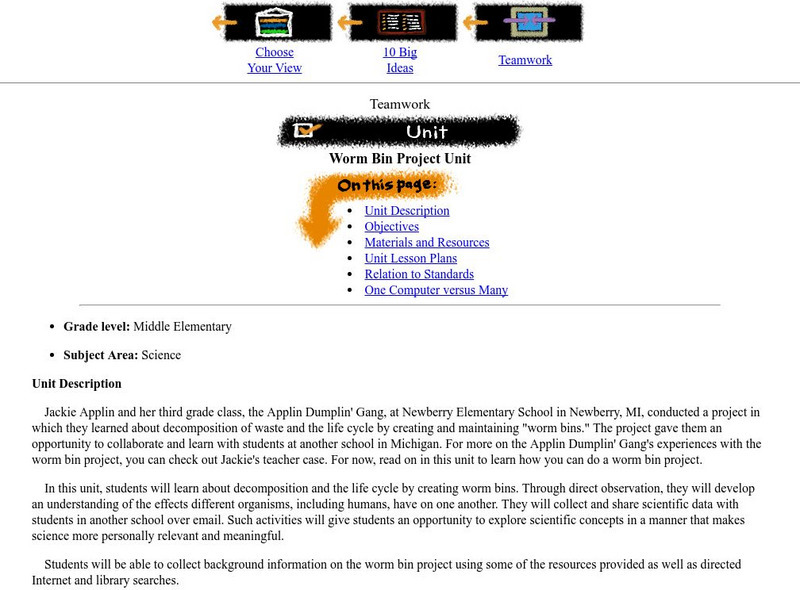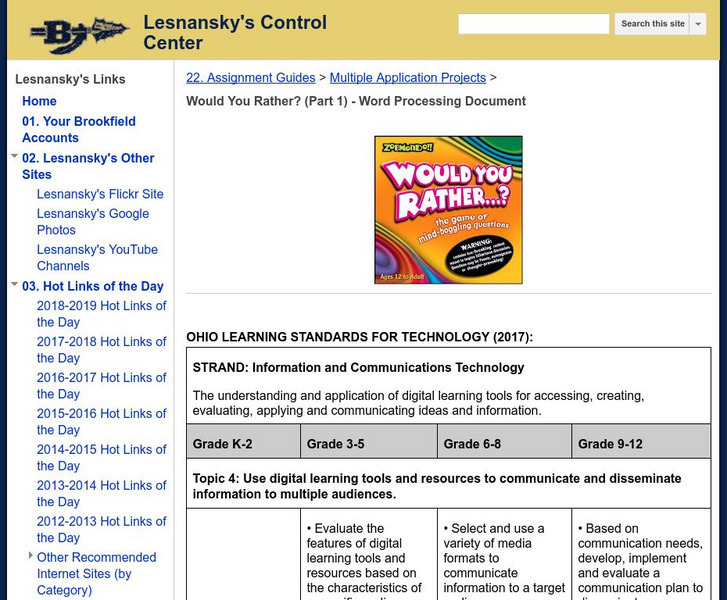Cengage Learning
Mission to Mars: Project Based Learning
Young scholars will plan a human expedition to the planet Mars. Through this project-based activity, they can choose to learn about the surface of Mars, the trip route, the analogical features between Mars and Earth, nutrition and...
Science Buddies
Science Buddies: Learning Your A, G, C's (And T, Too)
This is a project about the "molecular alphabet" of DNA. With just four "letters," it manages to keep track of the plan for an entire person, and keep a complete copy in nearly every cell. This project will help you start learning this...
Alabama Learning Exchange
Alex: P Hun With Acids and Bases!!! (A P H Lesson)
In this lesson plan, the students will learn the characteristics of acids and bases including the associated pH values. The students will conduct a hands-on activity that shows color indicators for different pH values. This lesson plan...
Alabama Learning Exchange
Alex: Taking Apart and Reconstructing Stories
This lesson is designed as a project-based unit plan that will take students through the narrative process from deconstruction to construction. After initial discussion, students will use the Interactive Story Map feature at Read Write...
Alabama Learning Exchange
Alex: Do You Know How?
Students will write in a technical genre. "Technical writing conveys specific information about a technical subject to a specific audience for a specific purpose. The words and graphics of technical writing are meant to be practical:...
Alabama Learning Exchange
Alex: We Can Dig It!
In this instructional activity, third grade students will explore "fossils" by using chocolate chip cookies in an interactive fossil dig! Through creative problem-based learning that incorporates technology, students will work in...
Michigan State University
Michigan State University: Lets Net: Worm Bin Project Unit
Students learn about the worm life cycle and decomposition of life by creating small-scale worm ecosystems. Research groups share scientific data with groups at other schools using web-based communication tools.
Thinkport Education
Thinkport: Water, Water, Everywhere: Final Presentation
Students plan to present their water purification system at the end of a project-based learning exercise.
Other
Alliance to Save Energy: Conservation for the Ages
"In this project based lesson plan, young scholars learn about various types of energy and the need to conserve energy, write a children's story about saving energy, and read their energy books to elementary students."
Other
Brookfield High School: Lesnansky's Control Center: Would You Rather? (Part 1)
In this activity, students will create a word processing document that will define four dilemmas in the game cards from Would You Rather? Lots of Would You Rather question examples can be found online. (The Part 2 activity can be found...
Buck Institute
Pbl Works: The Best Unit I've Ever Taught
[Free Registration/Login Required] An article outlining a PBL unit taught in an eighth grade history class. The educator discusses how the unit was developed by accident and how he drew on the students interest to make it successful!
Ohio State University
Ohio State University: Cold Cases: Lessons in Historical Skills and Methods
Lessons using primary sources to figure out what happened in the past allows students to examine and perhaps crack the mysteries that swirl around Byrd and his expedition to Antarctica to this day. Primary sources are available on the...
Alabama Learning Exchange
Alex: Telling Time to the Hour
This lesson helps children make a connection between the digital and analog clock. In general, the number system is based on units of ten which can sometimes make it difficult for children to realize that time is based on cycles of...
Alabama Learning Exchange
Alex: Dream Vacation
This unit teaches students to plan a trip with an itinerary, remain within a budget, and work cooperatively. It is a technology-based project that combines a study of mathematics, economics, geography, and social studies.
Alabama Learning Exchange
Alex: Lining Up the Decimals
This lesson provides a chance for the students to order decimals from least to greatest and greatest to least. The numbers are based on a student's ability. This lesson plan was created as a result of the Girls Engaged in Math and...
Alabama Learning Exchange
Alex: Can You Curl Your Tongue?
This lesson is adapted from a Connected Mathematics Unit, How Likely is It? This investigation introduces biology as a source of applications for probability. In this lesson, Curling your Tongue, students determine how many students in...















